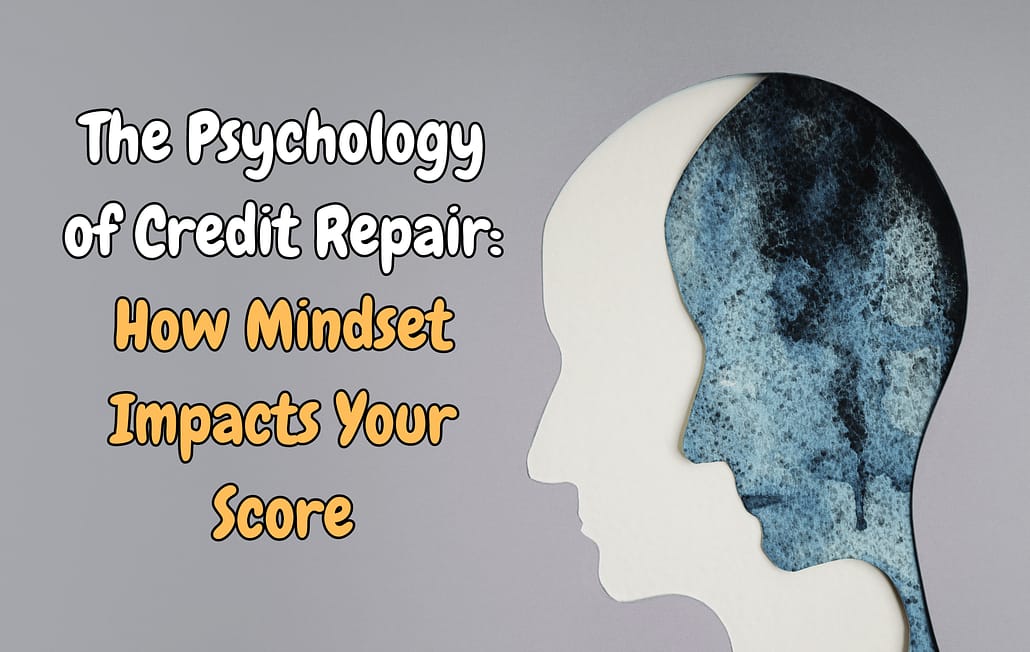When it comes to rebuilding your credit, it’s easy to focus solely on the numbers – those three digits that seem to hold the keys to your financial future. However, what many people overlook is the profound impact that psychology and mindset can have on credit repair. In this in-depth article, we will explore how your thought patterns, emotions, and behaviors can significantly influence your credit score, and we’ll provide strategies to harness the power of a positive mindset in your journey toward financial recovery.
The Power of Perception
Your credit score is a reflection of your financial history, and it can either open doors to opportunities or slam them shut. But what’s crucial to understand is that your perception of your credit score also plays a pivotal role. A negative outlook can perpetuate a cycle of financial struggle, while a positive one can motivate you to take the necessary steps for improvement.
The Self-Fulfilling Prophecy
Studies have shown that people who believe they can improve their credit score are more likely to take proactive steps to do so. Conversely, those who feel defeated by their poor credit often fall into a pattern of inaction or financial self-sabotage.
Visualizing Financial Success
Visualization techniques can be a powerful tool. By envisioning a future with a higher credit score, you can create a mental roadmap for achieving your financial goals.

Emotions and Financial Decisions
Emotions and financial decisions are tightly intertwined. It’s essential to recognize how your emotional state can affect your financial choices and, consequently, your credit score.
Emotional Spending
Stress, anxiety, and even happiness can trigger impulse spending. These emotional purchases can lead to debt, which negatively impacts your credit. Learning to manage emotional spending is a crucial step in credit repair.
The Shame Spiral
Many individuals with poor credit feel ashamed of their financial situation, which can lead to isolation and avoidance of financial responsibilities. Breaking this cycle often requires seeking support and reframing one’s perception of financial setbacks.
Changing Behaviors for Credit Improvement
Shifting your mindset and managing your emotions are vital, but they must be accompanied by tangible changes in behavior to rebuild your credit effectively.
Budgeting and Financial Literacy
Building a budget and improving your financial literacy can empower you to make informed decisions about your money. Understanding how to manage your finances is the first step toward a healthier credit profile.
Debt Repayment Strategies
Developing a plan to tackle your existing debts is essential. Whether it’s the snowball method, avalanche method, or debt consolidation, choosing the right strategy can make a significant difference in your credit recovery journey.
Building Positive Credit History
In addition to managing existing debts, it’s crucial to build a positive credit history. This can be done through responsible credit card use, on-time payments, and diverse credit accounts.

The Role of Patience and Persistence
Rebuilding credit is not an overnight process. It requires patience and persistence. Understand that setbacks may occur, but maintaining a positive mindset and sticking to your credit repair plan is key.
Setting Realistic Goals
Rather than fixating on a perfect credit score, set achievable milestones along the way. Celebrate small victories like paying off a credit card or reaching a certain credit score threshold.
Monitoring Progress
Regularly reviewing your credit report and score can provide motivation as you witness the positive changes. Many apps and services offer free credit monitoring tools.
Conclusion
In the world of credit repair, psychology, and mindset are often overlooked but are undeniably crucial. Your beliefs, emotions, and behaviors can either propel you toward a brighter financial future or keep you trapped in a cycle of financial despair. By recognizing the power of your thoughts and emotions, making proactive changes in your financial behavior, and maintaining patience and persistence, you can successfully rebuild your credit and take control of your financial destiny. Remember, it’s not just about the numbers; it’s about the mindset that shapes them.
 How to Get Rid of Ability Recovery Services on Credit ReportDecember 14, 2023
How to Get Rid of Ability Recovery Services on Credit ReportDecember 14, 2023 How to Cancel Your Credit One Card: A Step-by-Step GuideNovember 28, 2023
How to Cancel Your Credit One Card: A Step-by-Step GuideNovember 28, 2023 How to Handle Credit Collection Services (CCS) on Your Credit ReportOctober 24, 2023
How to Handle Credit Collection Services (CCS) on Your Credit ReportOctober 24, 2023 How to Handle Transworld Systems (TSI) on Your Credit ReportDecember 6, 2023
How to Handle Transworld Systems (TSI) on Your Credit ReportDecember 6, 2023 How to Remove Hard Inquiries from Your Credit Report in 15 MinutesOctober 10, 2023
How to Remove Hard Inquiries from Your Credit Report in 15 MinutesOctober 10, 2023










